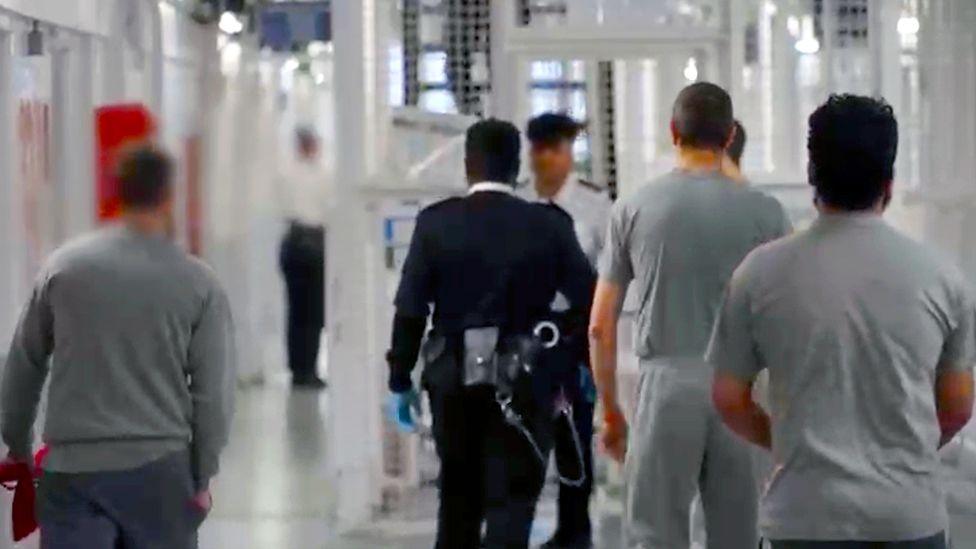Prisoners released early but some victims 'not warned'
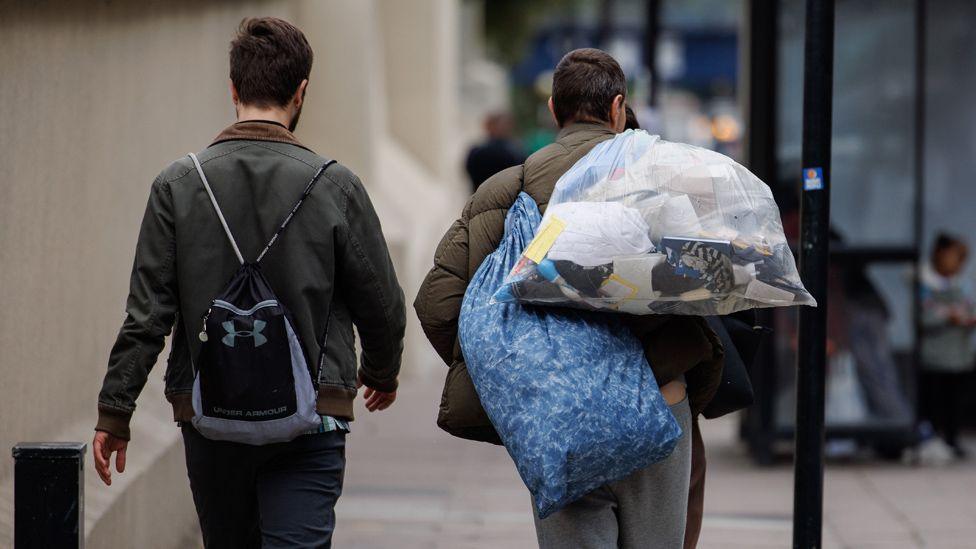
- Published
More than 1,700 prisoners have been released early in England and Wales as part of a government scheme to ease overcrowding in prisons.
One freed prisoner said conditions in his prison were "disgusting" with "water running black out of the taps" and "rats running around the wings".
Not all victims of crime were made aware of their offenders' early release date, the victims' commissioner for England and Wales said, warning that some victims may not have had the opportunity to seek "protective measures".
The government said offenders jailed for violent offences with sentences of at least four years, sex offenders and domestic abusers were not eligible for early release.
Baroness Newlove, the victims' commissioner for England and Wales, warned that not all victims of crime had been made aware of their offenders' early release date and given the opportunity to seek "protective measures".
She said that from the beginning of the scheme, she had sought assurances that all "impacted victims" would be informed of any early release dates, affording them the opportunity to request protective measures.
The Napo probation union said domestic abusers and sex offenders were among those released.
It described the early prisoner release scheme as a “ticking time bomb that could put public safety at risk”.
In a statement, the probation union said it feared the scheme was “moving the problem from one place to another without properly assessing the risks”.
In response, the Ministry of Justice (MoJ) pointed out eligibility for the scheme was based on the offence, not the offender. Some offenders may have been released early from a sentence for a lesser offence when they had previously completed a sentence for a sexual or violent offence, it added.
Nicole Jacobs, the domestic abuse commissioner for England and Wales, called for a blanket exemption for all known domestic abuse perpetrators.
"There is no justice in allowing perpetrators of domestic abuse to be released early," Ms Jacobs said, adding: "It might not be possible for every victim to be notified of their abuser's release and I fear they may be left blindsided".
There is no single offence for domestic abuse. Certain crimes like coercive control, harassment and stalking were excluded from the scheme, but not others including threats to kill and actual bodily harm. Prisoners convicted of these offences may still qualify for early release.
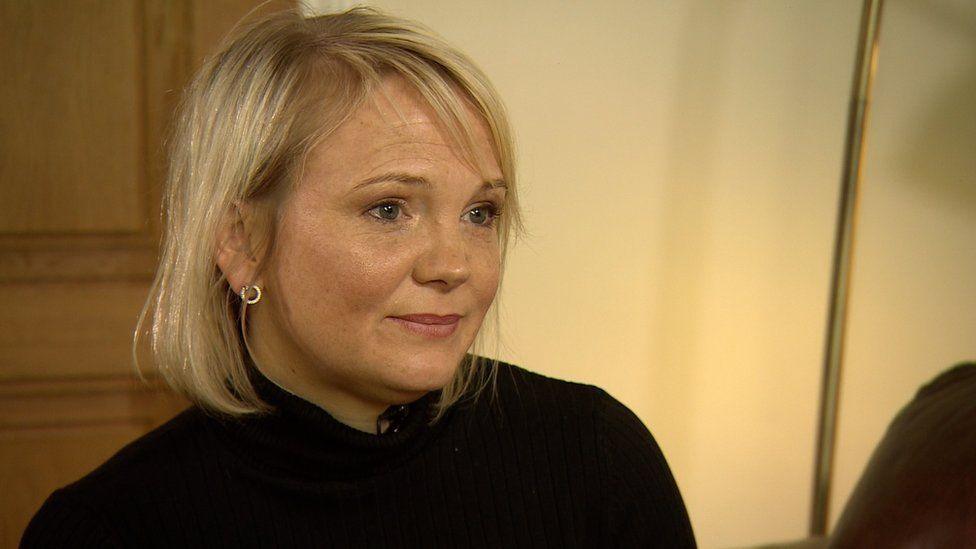
Elizabeth Hudson said she "sobbed" on being told her attacker was expected to be released early from jail
Assault victim Elizabeth Hudson told the BBC that she felt "sick" after being told her attacker could be released under the scheme.
Martin Underwood, 49, was jailed for six years and three months for attacking Ms Hudson at their home in Barnsley in April 2021, before assaulting a second victim while out on police bail.
Ms Hudson described him as "a dangerous, dangerous violent man that attacked me, for many years not just on that morning".
She added: "There’s a pattern of behaviour, there’s no grey area about whether or not it’s domestic abuse."
Underwood could be released in June 2025 under the emergency scheme. The MoJ said he had served his time for the domestic abuse offences of strangulation and threats to kill, and would be released early from an additional sentence for assault.
Under the release scheme, announced in July, offenders in jails in England and Wales serving sentences of fewer than five years will be released on licence into the community after having served 40% of their sentences, instead of 50%.
Being released on licence means that offenders must adhere to restrictions for the rest of their sentence, including curfews and tagging, and will be supervised by probation officers.
Chief inspector of prisons Charlie Taylor said the government "had no choice but to do something" about overcrowding. But he warned that it was "inevitable that some of these prisoners will get recalled to custody".
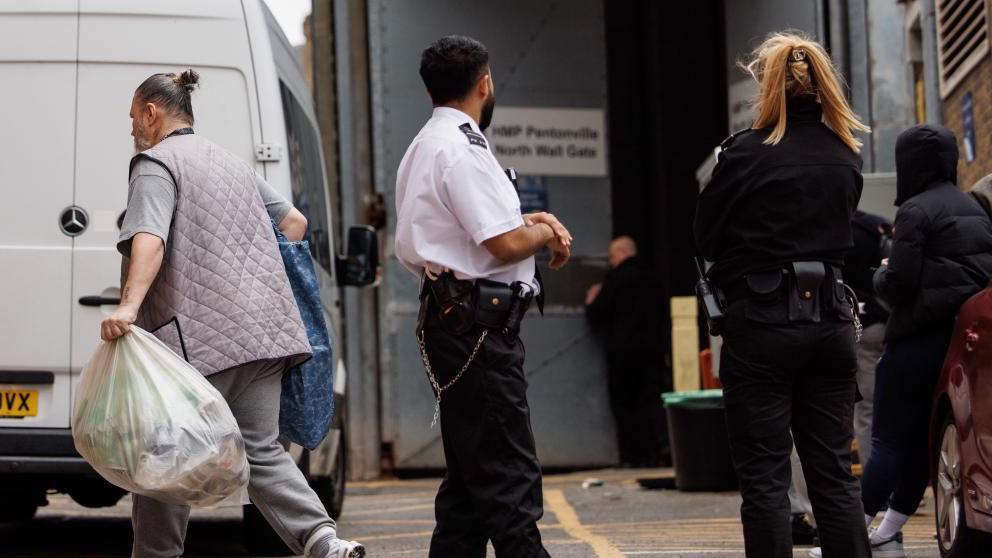
People were seen leaving prisons on Tuesday after the early release scheme came into effect
Napo general secretary Ian Lawrence said that early releases were "papering over the cracks," adding: "We’re likely to see a lot of people recalled to prison in short order."
Among those released on Tuesday was John Price, a 34-year-old who told the BBC he had been released four days early from a six-and-a-half month sentence for actual bodily harm in HMP Nottingham.
Price said accommodation had been arranged for him and he was hoping to go back to work.
"I would’ve happily stayed there for the rest of the time if I had to," he said, but said conditions in the prison were “terrible… there’s loads of violence".
Ryan Surplice, from Birmingham, was released from HMP Manchester on Tuesday after being jailed for three years for burglary.
"The wings in there are condemned. It is disgusting in that jail, there is water running black out of the taps, rats running around the wings,” Surplice told the BBC.
Another offender, released from HMP Wormwood Scrubs after serving 19 months of a three-and-a-half year sentence for drugs offences, said the early release scheme had been good for his family but added: "I don’t know if I agree with everybody being released early - especially for more serious crimes."
MoJ figures showed the combined male and female prison population hit a record high of 88,521 on Friday, with the operational capacity being 89,619.
Justice Secretary Shabana Mahmood said around 5,500 offenders will be released in September and October, leaving prison a few weeks or months early, to serve the rest of their sentence under strict licence conditions.
Mahmood told MPs on Tuesday that inmates who are homeless upon early release could be temporarily placed in taxpayer-funded budget hotels if there is not enough space in accommodation typically used for offenders.
The early release scheme was triggered by the incoming Labour government days after the general election, but officials had already been drawing it up when the Conservatives were in power.
The justice secretary said the scheme had prevented "a total breakdown of law and order".
Speaking to MPs, Mahmood said the government is "committed to publishing a 10-year capacity strategy," while "delivering the shortfall of 14,000 places" from the previous government.
An MoJ spokesperson said the government had inherited "a justice system on the verge of collapse".
“We have been forced into taking difficult but necessary action, with safeguards in place, so we can keep locking up offenders and protect the public."
Those released under the scheme will be subject to "full probation supervision", which will include "tough restrictions" in many cases, the MoJ said.
Additional reporting by Malu Cursino.
Watch on BBC iPlayer
Inside Britain's Prison Crisis
- Attribution
Get in touch
How do you feel about the government's early release scheme?
Related topics
- Published9 September 2024
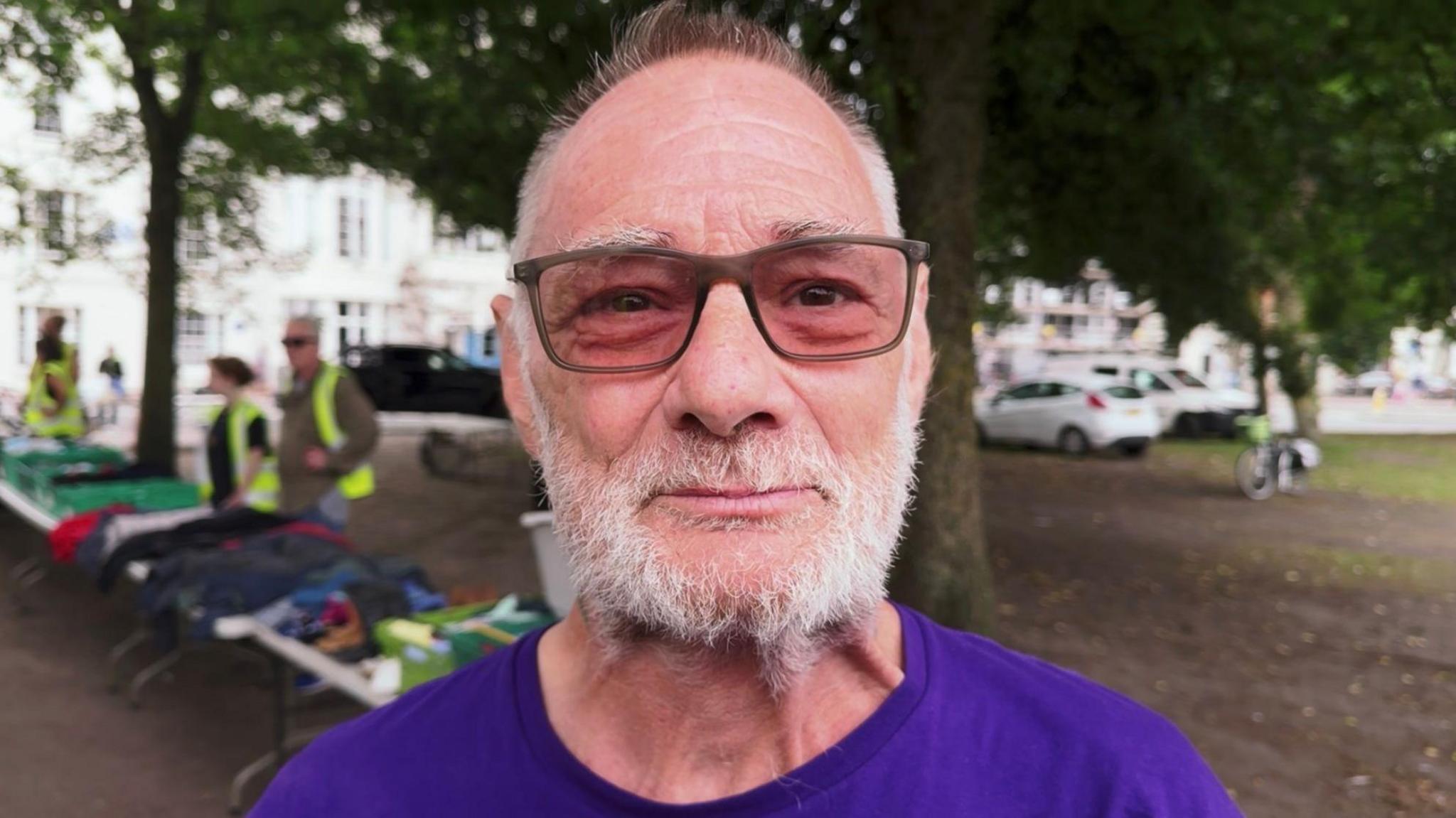
- Published5 September 2024
